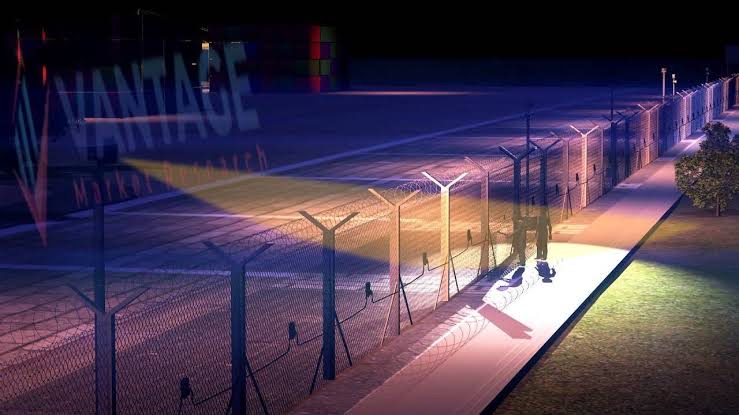The Importance of Border Security
Borders are the front lines of a nation’s defense against external threats. Effective border security helps to:
- Prevent Illegal Immigration: Unauthorized entry can strain public services and create economic and social challenges.
- Combat Smuggling and Trafficking: Borders are often targeted for the illegal transportation of drugs, weapons, and people.
- Protect Against Terrorism: Secure borders can prevent the entry of terrorists and the materials needed to carry out attacks.
- Regulate Trade and Commerce: Efficient border controls facilitate legitimate trade while preventing the importation of counterfeit goods and unsafe products.
Challenges in Border Security
Securing international borders presents numerous challenges, many of which are multifaceted and require coordinated efforts across different domains:
- Geographical Complexity: Borders often traverse difficult terrains such as mountains, deserts, and oceans, making surveillance and patrolling challenging.
- Technological Gaps: While advanced technology can enhance border security, not all countries have the resources to implement and maintain sophisticated systems.
- Legal and Human Rights Issues: Balancing security measures with respect for human rights and international law is a delicate task. Measures like detention and deportation can lead to human rights violations if not handled properly.
- International Cooperation: Effective border security often requires cooperation between neighboring countries, which can be hindered by political differences and lack of trust.
- Resource Allocation: Many countries face budget constraints that limit their ability to invest in necessary infrastructure, technology, and personnel.
Technological Advancements in Border Security
Advances in technology have the potential to revolutionize border security. Some key innovations include:
- Biometric Systems: Fingerprint and facial recognition technologies can accurately verify identities and detect impostors.
- Drones and Surveillance Systems: Unmanned aerial vehicles (UAVs) and high-tech surveillance cameras provide real-time monitoring of vast border areas.
- Artificial Intelligence (AI) and Machine Learning: AI can analyze data from various sources to predict and identify security threats.
- Blockchain Technology: Blockchain can enhance the security and transparency of supply chains, helping to prevent smuggling and counterfeiting.
- Automated Border Control (ABC) Systems: E-gates and self-service kiosks speed up the processing of legitimate travelers while enhancing security checks.
Case Studies: Border Security Around the World
Different countries face unique border security challenges and have adopted various strategies to address them. Here are a few notable examples:
- United States-Mexico Border: This border is one of the most frequently crossed in the world, with significant issues related to illegal immigration and drug trafficking. The U.S. has invested heavily in physical barriers, surveillance technology, and increased personnel to secure this border.
- European Union External Borders: The EU’s Schengen Area allows for passport-free travel among member countries, but this requires robust external border controls. The European Border and Coast Guard Agency (Frontex) assists member states in managing their external borders, focusing on illegal immigration and trafficking.
- India-Pakistan Border: This highly militarized border is characterized by frequent tensions and conflicts. Both countries employ extensive fencing, surveillance, and military patrols to secure the boundary.
- Australia’s Maritime Borders: Surrounded by vast oceans, Australia focuses on maritime surveillance to prevent illegal immigration and smuggling. The country uses a combination of naval patrols, aerial surveillance, and cooperation with neighboring countries to secure its borders.
Balancing Security and Human Rights
Effective border security must strike a balance between protecting national interests and respecting the rights of individuals. This involves:
- Humanitarian Considerations: Providing adequate facilities and support for asylum seekers and refugees, ensuring their rights are respected while their claims are processed.
- Transparent Policies: Clear and transparent policies help prevent abuses and ensure that security measures are applied fairly and consistently.
- International Standards: Adhering to international standards and agreements, such as the Refugee Convention and human rights treaties, ensures that border security practices align with global norms.
Future Directions in Border Security
The future of international border security will likely involve:
- Increased Use of Technology: Continued investment in advanced technologies, such as AI and biometric systems, will enhance the ability to monitor and secure borders efficiently.
- Enhanced International Cooperation: Strengthening collaboration between countries and international organizations will be crucial in addressing transnational threats.
- Comprehensive Approaches: Integrating border security with broader security and foreign policy strategies will provide a more holistic approach to addressing underlying issues such as conflict, poverty, and migration pressures.
- Public-Private Partnerships: Collaborating with private sector companies can provide innovative solutions and share the burden of securing borders.
Conclusion
International border security is a complex and evolving field that requires a multifaceted approach. While challenges such as geographical barriers, technological gaps, and legal issues persist, advancements in technology and increased international cooperation offer promising solutions. By balancing security needs with respect for human rights, nations can protect their borders while upholding their commitments to global standards and humanitarian principles. As the world continues to change, border security strategies must adapt to ensure the safety and security of all nations.



Something so important covered meticulously
Excellent
Good work
Informative article covering all key aspects of border security ~ interesting read and got to know many new things about border security.
Keep sharing such informative articles.
Thank you.